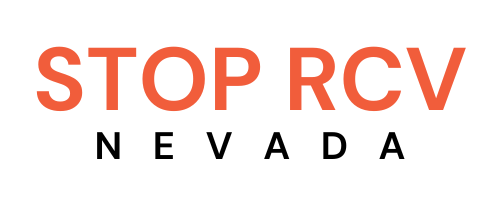As November is fast approaching, you have undoubtedly seen hundreds of ads, mailers, and political noise bustling over every channel. Amongst all the messaging and campaigning, one ballot initiative is aiming to completely alter the state constitution and the way Nevadans vote. This is ranked-choice voting.
While many explanations are circulating throughout the internet, ranked-choice voting, or Question 3 as it will be known in November, is, in the simplest terms is a series of instant runoff elections.
A more detailed explanation from Ballotpedia states, “…voters would rank the five candidates that advanced from their top five primaries. A candidate would need a simple majority of the vote (50%+1) to be declared the winner of an election. If no candidate wins a simple majority of the vote, the candidate with the fewest votes would be eliminated. People who voted for that candidate as their first choice would have their votes redistributed to their next choice. The tabulation process would continue as rounds until a candidate receives a majority of the vote and is declared the winner.”[1]
While the process of ranking candidates on personal preferences is widely understood, the promises RCV (ranked-choice voting) are in the outcomes which is also where the inherent problems of RCV begin.
Become an Election Integrity Advocate
Help stop RCV by spreading the word! Sign up below to receive email alerts about the latest news and what you can do to help stop RCV in Nevada.
"*" indicates required fields
1. Counting is Hard
Counting votes should be the easiest part of any election, if the Count on Sesame Street could do it so should election officials right? Instead of having one simple round of counting, RCV requires up to five rounds for each race.
Imagine having to count each ballot a single time without reaching a 50% majority, only to count everything over again to examine the second choice of every ballot. If you are starting to feel like Bill Murray on Groundhog’s Day, you are in good company.
Even election officials have had trouble certifying results due to the many runoffs, like in the case of Alameda County’s school board race which certified the WRONG person only to retract the results when the error was found.[2] This opens the door to challenges in accountability, recount dynamics, and of course delays in an already slow process here in the Nevada.
2. Ranked Choice Voting is More Expensive
Like the lyrical philosopher Biggie Smalls once said, “I don’t know what they want from me, it’s like the more money we come across, the more problems we see.” In the case of RCV, more money is demanded everywhere. More money for new voting machines that are required or more paper required for the longer ballots, retraining all election officials, and the money required to reeducate the entire state on the new voting system is just the beginning.
As any Nevadan knows, issues like improving education, infrastructure, and gas prices are top priorities and changing the election system in Nevada is not even on most people’s radar.
3. Ranked Choice Voting Promises Change
The biggest claim that ranked-choice voting proposes is offering a moderate third option. But before you burn your bra and go buy a Banksy consider this. The labeling of a third option to be more moderate is a sugar-coated way of saying second best is good enough.
Imagine in the NBA finals that the winning team does not get awarded the trophy, but instead officials award the defeated team because over the entire season they scored more points. Second best does not win championships, and it should not win elections.
4. Ranked Choice Voting Makes Elections Civil
Another point RCV tries to assert is that because of the need to seek a broader appeal to the state’s population, campaigns will be more civil. Negative ads will become taboo, and candidates will evolve their tactics to reach people in a “better way.” However, there is no actual peaceful drum circle when it comes to ranked-choice voting, it is more like war drums.
In a study by the election lab at MIT (Massachusetts Institute of Technology) found that in Maine, “negative spending increased significantly in Maine following the implementation of ranked-choice voting… the 2018 campaign was even more negative than in paired districts around the country”[3]
No matter how you slice it, ranked-choice voting is a broken system propped up by lofty claims and hidden problems. Nevadans should reconsider this initiative as the volatile Frankenstein experiment that it is before voting to add it to the state constitution this November.
Become an Election Integrity Advocate
Help stop RCV by spreading the word! Sign up below to receive email alerts about the latest news and what you can do to help stop RCV in Nevada.
"*" indicates required fields
[1] Nevada Secretary of State, “Notice of intent to circulate statewide initiative or referendum petition,” accessed August 11, 2022, https://www.nvsos.gov/sos/home/showpublisheddocument?id=9973
[2] ABC& News, “Alameda Co. finds error in ranked choice voting system, investigating Oakland school board race,” accessed December 29, 2022, https://abc7news.com/ranked-choice-voting-oakland-school-board-director-district-4-race-mike-hutchinson-alameda-county-registrar-of-voters/12626221/
[3] Election Lab MIT, The Effect of Ranked-Choice Voting in Maine, accessed March 18, 2021, https://electionlab.mit.edu/articles/effect-ranked-choice-voting-maine
